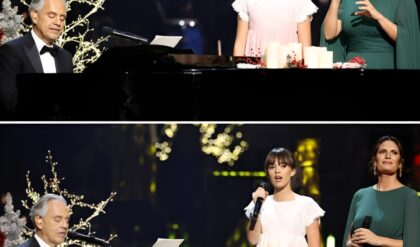Disney’s live-action Snow White remake, once heralded as a crown jewel in the studio’s storied legacy, has become a cautionary tale in Hollywood, mired in a reported $300-million financial debacle and relentless controversy. Released on March 21, 2025, the film—starring Rachel Zegler as the iconic princess and Gal Gadot as the Evil Queen—grossed a disappointing $42.2 million domestically and $86.1 million globally during its opening weekend, far below expectations for a project with a staggering $370-million budget. As the dust settles, industry insiders and analysts are dissecting what went wrong, pointing to a perfect storm of production woes, polarizing casting decisions, and Zegler’s public missteps that turned a fairy-tale dream into a Hollywood curse.
A Costly Misadventure: The Financial Fallout
The Snow White remake was a high-stakes gamble for Disney, with a production budget of $270 million and an additional $100 million spent on marketing, driven by costly reshoots, COVID-19 protocols, a set fire, and 2023’s industry strikes. Despite its hefty price tag, the film has struggled to gain traction, grossing just $205.6 million worldwide by May 2025, with projections suggesting a final tally closer to $225 million. According to industry estimates, the film needed to hit at least $500 million to break even, leaving Disney facing a potential $115-million loss after ancillaries like home entertainment and Disney+ streaming are factored in. Some reports even suggest losses could climb as high as $300 million, factoring in the film’s failure to resonate globally.
The financial hit is particularly stinging given Disney’s track record with live-action remakes. Films like The Lion King (2019) and Beauty and the Beast (2017) soared past $1 billion, setting a high bar that Snow White was expected to meet. Instead, it has underperformed compared to even less successful remakes like Dumbo (2019), which grossed $353 million against a smaller budget. Analysts attribute the shortfall to audience fatigue with Disney’s remakes, negative reviews (the film holds a 62% on Rotten Tomatoes), and a B+ CinemaScore, a record low for the studio’s live-action adaptations. As Jeff Bock of Exhibitor Relations noted, “Too much negative controversy surrounded this film for years, and it didn’t help that the reviews were subpar, likely rendering this latest live-action adventure to D+ for many potential ticket buyers.”
The Plot and Production: A Modern Reimagining Gone Awry
Directed by Marc Webb and produced by Marc Platt, Snow White aimed to reimagine the 1937 animated classic with a feminist lens, emphasizing Snow White’s agency as a leader rather than a passive damsel. The story follows Zegler’s Snow White, who forms an alliance with the Seven Dwarfs—rendered via CGI to avoid perpetuating stereotypes—and a new character, Jonathan (Andrew Burnap), to reclaim her kingdom from Gadot’s Evil Queen. New songs by Benj Pasek and Justin Paul, coupled with Greta Gerwig’s script contributions, promised a fresh take, but leaked set photos and plot details sparked backlash early on. Fans criticized the CGI dwarfs, with some calling for practical effects or actors with dwarfism, while others decried the shift away from the original’s romantic focus.
Production was plagued by challenges. Filming, which began in 2022, faced delays due to a fire on the UK set, COVID-19 safety measures, and extensive reshoots in 2024 following negative reactions to early footage. The 2023 writers’ and actors’ strikes further inflated costs, requiring additional work to align the film with Disney’s vision. These setbacks, combined with a marketing campaign that struggled to counter negative buzz, left Snow White fighting an uphill battle before its release.
Rachel Zegler: A Star Under Fire
At the center of the storm is Rachel Zegler, whose casting as Snow White sparked debate from the outset. The 24-year-old actress, celebrated for her Golden Globe-winning role in West Side Story (2021), faced racist backlash for playing a character traditionally depicted as “white as snow,” a reference to the 1812 Brothers Grimm tale. Zegler addressed these criticisms head-on, emphasizing the universal appeal of Snow White’s kindness and resilience, but her outspokenness on other fronts fueled further controversy.
In 2022, Zegler’s comments at a red-carpet event, where she called the original’s love story “weird” and emphasized a leadership-driven narrative, alienated traditionalist fans. Her 2024 X post alongside the Snow White trailer, ending with “and always remember, free Palestine,” drew ire from some quarters, prompting Disney to intervene. According to reports, producer Marc Platt met with Zegler in New York to address concerns, and the studio hired a “social media guru” to vet her online activity. While Zegler stood firm, refusing to retract her statement, the incident strained her relationship with Disney, with insiders noting she “didn’t understand the repercussions” for the film or co-star Gal Gadot, who faced death threats amid the backlash.
Gadot, an Israeli actress and IDF supporter, also faced scrutiny, with pro-Palestinian advocates criticizing her casting. The polarized reactions to both actresses’ political stances created a culture-war firestorm, with ticket sales reflecting an unusual split: 40% from red states, higher than the typical 33% for general audiences, suggesting no widespread boycott despite online outrage. Still, the negative publicity clung to the film, with one rival studio executive stating, “You can’t say that a live-action remake of the most iconic film in the vault that cost [$270] million and has been reshot multiple times opening to $50 million is OK. The math does not work.”
Zegler’s Response: Resilience Amid Backlash
Zegler has not shied away from addressing the film’s failure and the personal toll of the backlash. In a June 2025 interview with i-D magazine, she revealed that therapy and medication helped her cope with the vitriol, with her psychiatrist reminding her that the hate she faced “isn’t normal.” “I think a victim mindset is a choice, and I don’t choose it,” she told i-D. “I choose positivity and light and happiness.” Zegler also stood by her activism, stating, “There are obviously things that are at stake by being outspoken, but nothing is worth innocent lives.” Her decision to return to New Jersey from New York during the height of the controversy underscored the emotional weight of the ordeal.
On Instagram, marking her 24th birthday in May 2025, Zegler posted cryptically, “23 was neither good nor bad but a secret third thing,” hinting at the drama without directly addressing it. Fans praised her resilience, with supporters like West Side Story co-star James Olivas defending her against media attacks, telling The Hollywood Reporter, “It’s people just choosing to be angry at her because she is a woman of color, and she is young, an easy target.” Despite the criticism, Zegler’s talent remains undeniable, with early screenings praising her “luminous” performance and vocal prowess.
The Cast and Creative Team: A Mixed Bag
Beyond Zegler and Gadot, the Snow White ensemble includes Andrew Burnap as Jonathan, Ansu Kabia as the Huntsman, and a CGI-rendered Seven Dwarfs voiced by notable actors like Martin Klebba. Gadot, in her first major role since Wonder Woman 1984 (2020), has defended the film, arguing in a USA Today interview that Hollywood’s political pressures impacted its reception. She denied reports of tension with Zegler, emphasizing their professional respect. Director Marc Webb, known for 500 Days of Summer, brought visual flair but struggled to unify the film’s ambitious vision, while producer Marc Platt’s experience with Wicked couldn’t salvage the project’s momentum.
Lessons for Disney and Hollywood
The Snow White debacle offers stark lessons for Disney and the industry. First, the era of guaranteed success for live-action remakes may be waning, as audiences grow weary of familiar stories. Unlike Cruella (2021), which thrived with an avant-garde spin, Snow White’s straightforward approach failed to capture the same magic. Second, the controversy underscores the risks of casting outspoken young stars in an age of social media amplification. Zegler’s unfiltered voice, while authentic, became a lightning rod, highlighting the need for studios to balance artistic freedom with brand management.
For Zegler, the fallout may be a temporary setback. Her upcoming roles in A24’s Y2K and She Gets It From Me with Marisa Tomei signal a bright future. Disney, meanwhile, is pivoting to focus on new IP, with CEO Bob Iger emphasizing a balance between originals and remakes. As Snow White fades from theaters and heads to Disney+, its long-term viewership may soften the financial blow, but its legacy as a cautionary tale is sealed.
Conclusion: A Fairy Tale Without a Happy Ending?
Snow White was meant to be Rachel Zegler’s coronation as a Disney princess, but instead, it’s become a symbol of Hollywood’s high-stakes miscalculations. The $300-million crisis, fueled by production chaos, polarizing casting, and unrelenting controversy, has left Disney reeling and Zegler navigating a gauntlet of public scrutiny. Yet, her resilience and undeniable talent suggest she’ll emerge stronger, while Disney must rethink its approach to remakes in a changing industry. For now, Snow White’s tale is less about “happily ever after” and more about surviving a Hollywood curse.





